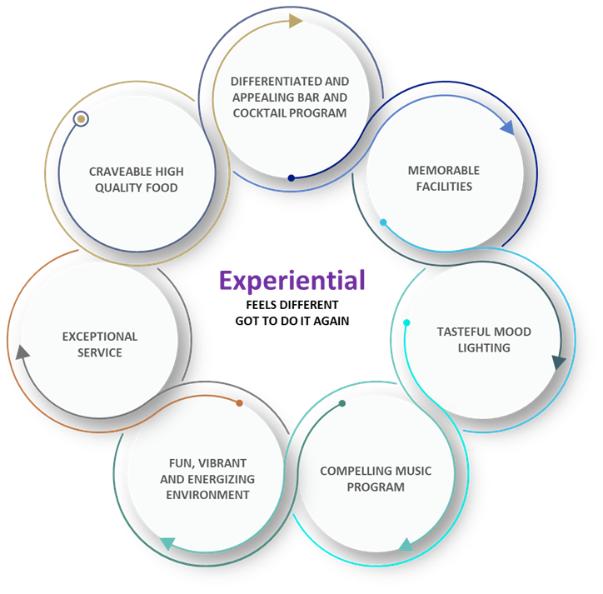subject to claims for purportedly fraudulent transactions arising out of the actual or alleged theft of credit or debit card information, and we may also be subject to lawsuits or other proceedings relating to these types of incidents. Further, in 2015, the major credit card networks shifted the liability associated with EMV (Europay/Mastercard/Visa) chip card technology to the merchants. With this liability shift, any restaurant or merchant that is not using an approved chip-and-pin point-of-sale device would be liable for counterfeit or fraudulent charges.
Despite the implementation of security measures (such as the employment of internal resources and external consultants to conduct auditing and testing for weaknesses in our informational technology environment), our internal computer systems and those of our third-party contractors and consultants are vulnerable to damage or disruption from hacking, computer viruses, software bugs, unauthorized access or disclosure, natural disasters, terrorism, war, and telecommunication, equipment and electrical failures. There can be no assurance that we will promptly detect any such disruption or security breach, if at all. Unauthorized access, loss or dissemination could disrupt our operations, our ability to process and prepare company financial information, and manage various general and administrative aspects of our business. To the extent that any such disruption or security breach results in a loss of or damage to our data or applications, or inappropriate disclosure or theft of confidential, proprietary or personal information, we could incur liability, suffer reputational damage or poor financial performance or become the subject of regulatory actions by state, federal or non-US authorities, any of which could adversely affect our business.
We are subject to numerous and changing U.S. federal and foreign government regulations. Failure to comply with or substantial changes in government regulations could negatively affect our sales, increase our costs or result in fines or other penalties against us.
Each of our venues is subject to licensing and regulation by the health, sanitation, safety, labor, building environmental (including disposal, pollution, and the presence of hazardous substances) and fire agencies of the respective states, counties, cities, and municipalities in which it is located, as well as under federal law. These regulations govern the preparation and sale of food, the sale of alcoholic beverages, the sale and use of tobacco, zoning and building codes, land use and employee, health, sanitation and safety matters. Alcoholic beverage control regulations govern various aspects of our locations’ daily operations, including the minimum age of patrons and employees, hours of operation, advertising, wholesale purchasing and inventory control, handling and storage. Typically, our locations’ licenses to sell alcoholic beverages must be renewed annually and may be suspended or revoked at any time for cause. A failure to comply with one or more regulations could result in the imposition of sanctions, including the closing of venues for an indeterminate period of time, or third-party litigation, any of which could have a material adverse effect on us and our results of operations.
Government regulation can also affect customer traffic at our locations. A number of states, counties and cities have enacted menu labeling laws requiring multi-unit restaurant operators to disclose certain nutritional information. For example, the Affordable Care Act establishes a uniform, federal requirement for restaurant chains with 20 or more locations operating under the same trade name and offering substantially the same menus to post nutritional information on their menus, including the total number of calories. The law also requires such restaurants to provide to consumers, upon request, a written summary of detailed nutritional information, including total calories and calories from fat, total fat, saturated fat, cholesterol, sodium, total carbohydrates, complex carbohydrates, sugars, dietary fiber, and total protein in each serving size or other unit of measure, for each standard menu item. The Food and Drug Administration is also permitted to require additional nutrient disclosures, such as trans-fat content. Our compliance with the Affordable Care Act or other similar laws to which we may become subject could reduce demand for our menu offerings, reduce customer traffic and/or reduce average revenue per customer, which would have an adverse effect on our revenue. Any reduction in customer traffic related to these or other government regulations could affect revenues and adversely affect our business and results of operations.
Our foreign operations are subject to all of the same risks as our domestic restaurants and food and beverage hospitality services operations, and additional risks that include, among others, international economic and political conditions and the possibility of instability and unrest, differing cultures and consumer preferences, diverse government regulations and tax systems, the ability to source fresh ingredients and other commodities in a cost-effective manner and the availability of experienced management.
We are subject to governmental regulation in the domestic and international jurisdictions where we operate, including antitrust and tax requirements, anti-boycott regulations, import/export/customs regulations and other international trade regulations, the USA PATRIOT Act and the Foreign Corrupt Practices Act. Any new regulatory or
